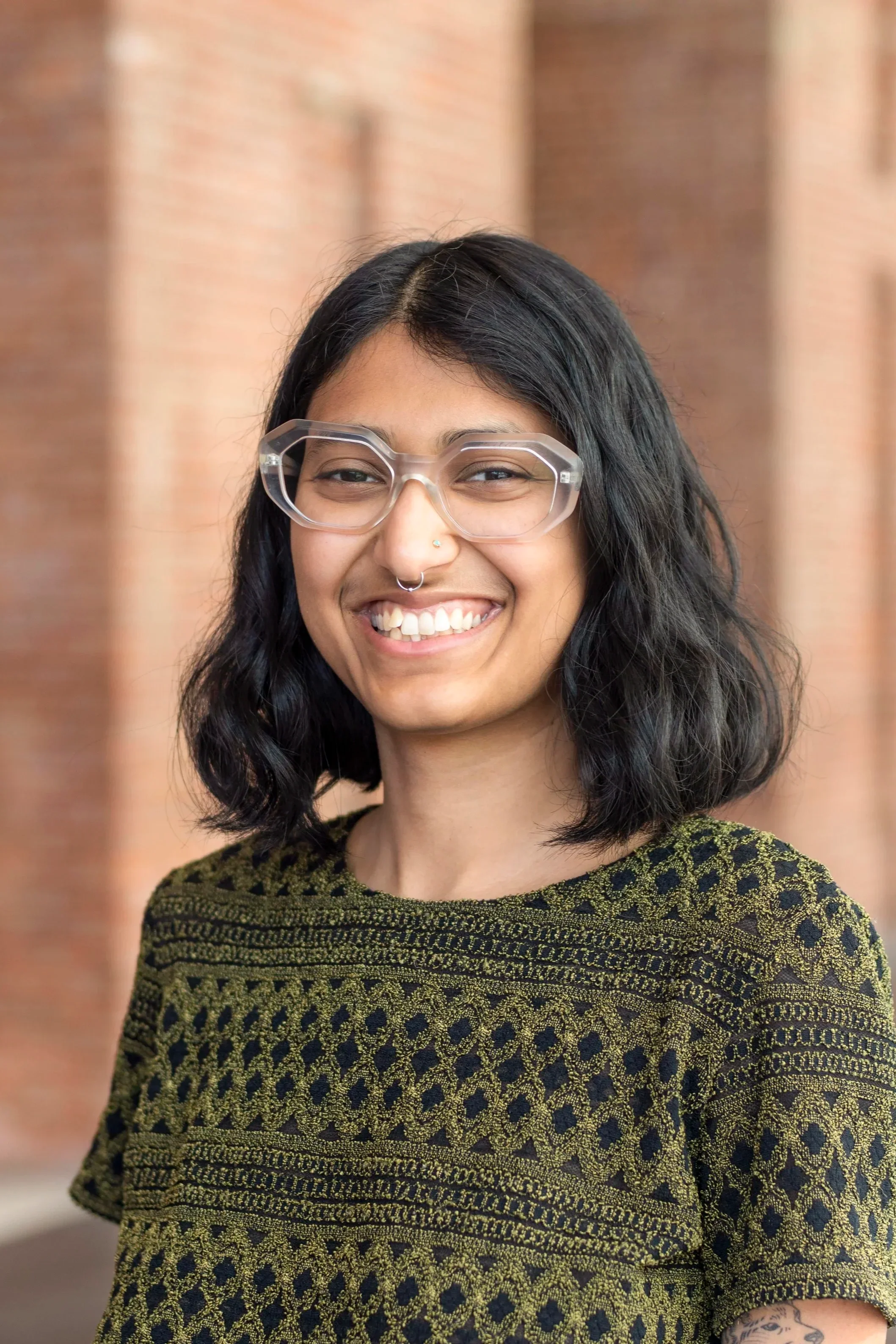Ananya Garg (she/her) is a visual artist, writer, and oral historian. She graduated from OHMA in 2025. During her time as a student, Ananya combined her coursework within OHMA and the Visual Arts department to complete her thesis “Artmaking As Intervention in Oral History Methodology: Painting Portraits of Queer/Trans South Asian Chosen Family.”
Ananya has completed and/or worked on several oral history projects including working on the NYC Department of Records and Information Services’ Neighborhood Stories project, Lehman College’s LGBTQIA+ Oral History project, contributing to the University of Washington’s Department of Gender, Women, Sexuality Studies 50th anniversary oral history archive, an oral history project of queer and trans students of color, and as part of the Museum Education Fellowship Program at the Brooklyn Museum, a project interviewing alumni of the museum’s teen programs. She has been deeply moved by the experience and reciprocity of giving and receiving stories within her community. Before OHMA, Ananya was trained in oral history methodology under the guidance of Dr. Priti Ramamurthy during her undergraduate education in the Department of Gender, Women, Sexuality Studies at the University of Washington. She also completed training with Suzanne Snider at Oral History Summer School.
You can find Ananya’s writing published or forthcoming in YES! Magazine, The Asian American Feminist Collective, Sinister Wisdom, The Asian American Writers Workshop, and elsewhere. A queer South Asian woman, Ananya lives in Brooklyn, NY with her partner and dog. When she’s not looking to hear or tell a good story, Ananya can be found painting, printmaking cards for her chosen family, and drinking hot chocolate or lemonade, depending on the season.










